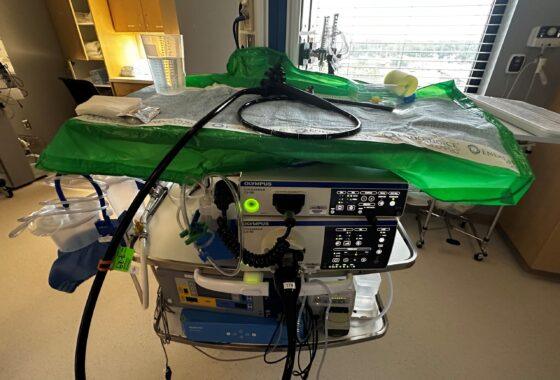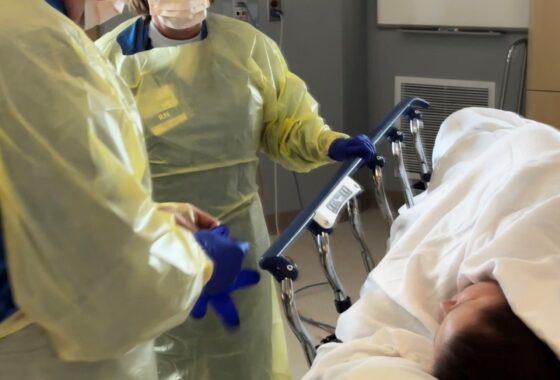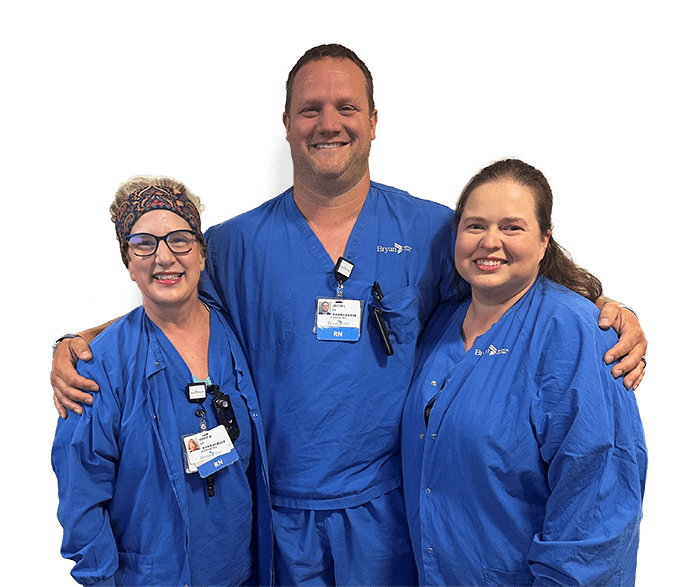

Procedure Prep Instructions
Diet medications such as phentermine need to be held
Ask your doctor about your medications if you’re unsure.
Stop taking these meds:
- Adipex
- Atti-Plex
- Fastin
- Lomaira
- OraVerse
- Osymia
- Phentermine
- Regitine
Medications injected once weekly for diabetes or weight loss must be held the week prior
Ask your doctor about your medications if you’re unsure.
Stop taking these meds:
- Adlyxin
- Byetta
- Bydureon
- Mounjaro
- Ozempic
- Tanzeum
- Tirzepatide
- Trulicity
- Wegovy
- Zepbound
- Phentermine
- Regitine
Blood-thinning medications may need to be held. You will receive specific instructions
Anti-inflammatory meds need to be held (Celebrex, ibuprofen, naproxen)
Stop all OTC medications, vitamins and supplements. Allergy meds are OK.
Ask your doctor about your medications if you’re unsure.
Stop taking these meds:
- Aggrenox
- Brilinta
- Cilostazol
- Coumadin
- Clopidogrel
- Effient
- Phentermine
- Plavix
- Pletal
- Prasugrel
- Ticlid
- Warfarin
Blood-thinning medications may need to be held. You will receive specific instructions
Anti-inflammatory meds need to be held (Celebrex, ibuprofen, naproxen)
Stop all OTC medications, vitamins and supplements. Allergy meds are OK.
Ask your doctor about your medications if you’re unsure.
Stop taking these meds:
- Contrave
- Naltrexone
Blood-thinning medications may need to be held. You will receive specific instructions
Anti-inflammatory meds need to be held (Celebrex, ibuprofen, naproxen)
Stop all OTC medications, vitamins and supplements. Allergy meds are OK.
Ask your doctor about your medications if you’re unsure.
Stop taking these meds:
- Apixaban
- Eliquis
- Pradaxa
- Xarelto
OK to eat and drink today until midnight.
DO NOT EAT AFTER MIDNIGHT.
CLEAR LIQUIDS ONLY. DO NOT EAT BEFORE YOUR PROCEDURE.
STOP DRINKING 2 HOURS BEFORE YOUR CHECK-IN TIME.
NO oral diabetic meds. Ok for 1/2 dose of insulin, hold all other injectable diabetic medications
OK to take BP meds, asthma/respiratory meds, seizure meds, Parkinson’s meds, and steroids with sips of water at least 2 HOURS before you check in.
Clear liquids = water, juice without pulp, sports drinks, Jello, popsicles, sodas, soup broth, tea, black coffee (sugar ok, NO creamer).
- NO red dyes (red, dark blue, or dark purple colors)
- NO milk or dairy products
- NO alcohol
Bring a driver with you. NO public transportation, Lyft, or Uber.
FOR YOUR SAFETY, FAILURE TO FOLLOW THESE INSTRUCTIONS MAY RESULT IN YOUR PROCEDURE BEING CANCELLED.
Upper Endoscopy FAQ
How Should I Prepare For an Upper Endoscopy?
An empty stomach allows for the best and safest examination, so you should have nothing to eat after midnight the night before your procedure. You may drink liquids (except milk or dairy products) until 2 hours before checking in.
Tell your doctor in advance about any medications you take; you might need to adjust your usual dose for the examination. Discuss any allergies to medications as well as medical conditions, such as heart or lung disease.
Also, alert your doctor if you require antibiotics prior to undergoing dental procedures, because you might need antibiotics prior to upper endoscopy as well.
Can I Take My Current Medications?
Tell your doctor in advance about any medications you take; you might need to adjust your usual dose for the examination. Discuss any allergies to medications as well as medical conditions, such as heart or lung disease.
Also, alert your doctor if you require antibiotics prior to undergoing dental procedures, because you might need antibiotics prior to upper endoscopy as well.
What Are The Possible Complications of Upper Endoscopy?
Upper endoscopy is a safe and commonly performed procedure, but like any medical test, it carries a small risk of complications. These may include reactions to sedation, bleeding, perforation, sore throat, or bloating.
Your care team takes every precaution to minimize these risks and ensure your safety. Your doctor will discuss any concerns with you before the procedure.
What Can I Expect During Upper Endoscopy?
Your doctor might start by spraying your throat with a local anesthetic or by giving you a sedative to help you relax. You’ll then lie on your side, and your doctor will pass the endoscope through your mouth and into the esophagus, stomach, and duodenum. The endoscope does not interfere with your breathing.
What Happens After an Upper Endoscopy?
You will be monitored until most of the effects of the medication have worn off. Your throat might be a little sore, and you might feel bloated because of the air introduced into your stomach during the test. You will be able to eat after you leave unless your doctor instructs you otherwise.
Your doctor generally can tell you your test results on the day of the procedure; however, the results of biopsies and pathology may take 7-10 days.
If you have been given sedatives during the procedure, someone must drive you home and stay with you. No public transportation. Even if you feel alert after the procedure, your judgment and reflexes could be impaired for the rest of the day. No driving or alcohol for the remainder of the day.
